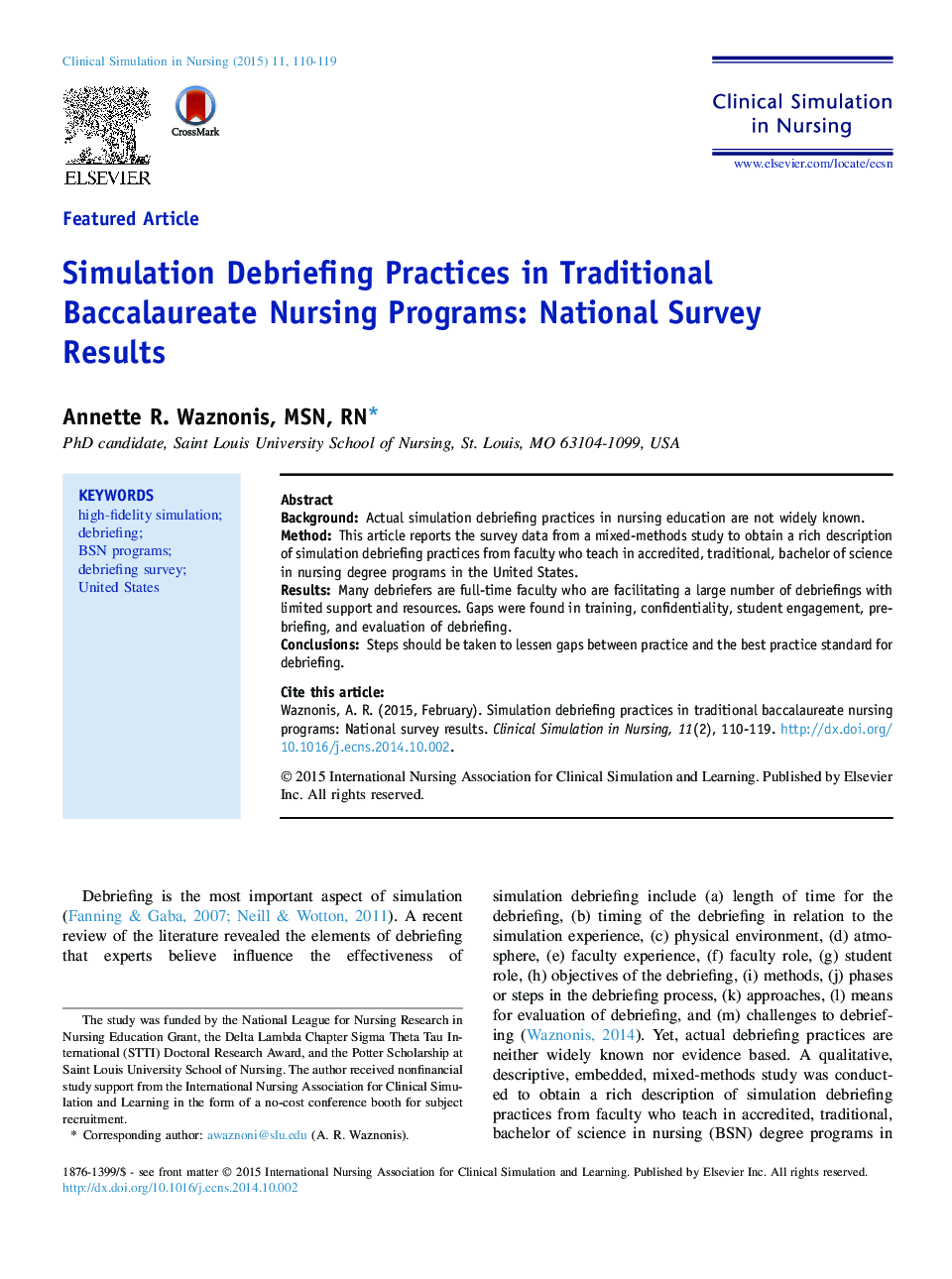| Article ID | Journal | Published Year | Pages | File Type |
|---|---|---|---|---|
| 2646949 | Clinical Simulation in Nursing | 2015 | 10 Pages |
•Many debriefers are full-time faculty, masters prepared with an education focus.•Written policies for privacy and confidentiality in debriefing are lacking.•Debriefing is semistructured with beginning, middle, and end phases.•Most debriefings are guided toward a specific purpose but are not evaluated.•Debriefing issues: student engagement, time, training, faculty resistance, and fatigue.
BackgroundActual simulation debriefing practices in nursing education are not widely known.MethodThis article reports the survey data from a mixed-methods study to obtain a rich description of simulation debriefing practices from faculty who teach in accredited, traditional, bachelor of science in nursing degree programs in the United States.ResultsMany debriefers are full-time faculty who are facilitating a large number of debriefings with limited support and resources. Gaps were found in training, confidentiality, student engagement, prebriefing, and evaluation of debriefing.ConclusionsSteps should be taken to lessen gaps between practice and the best practice standard for debriefing.
